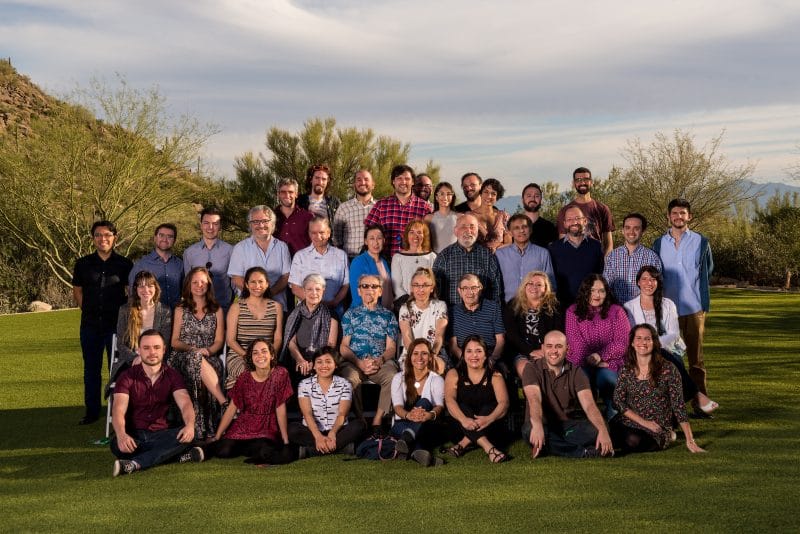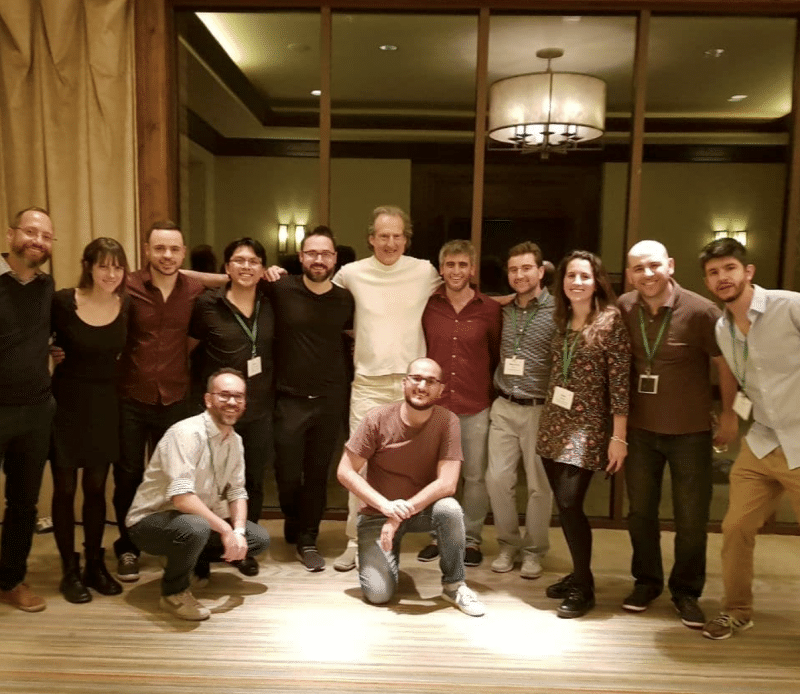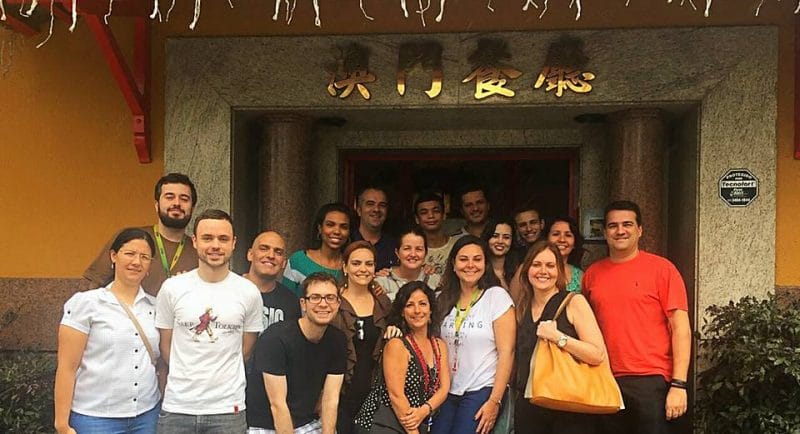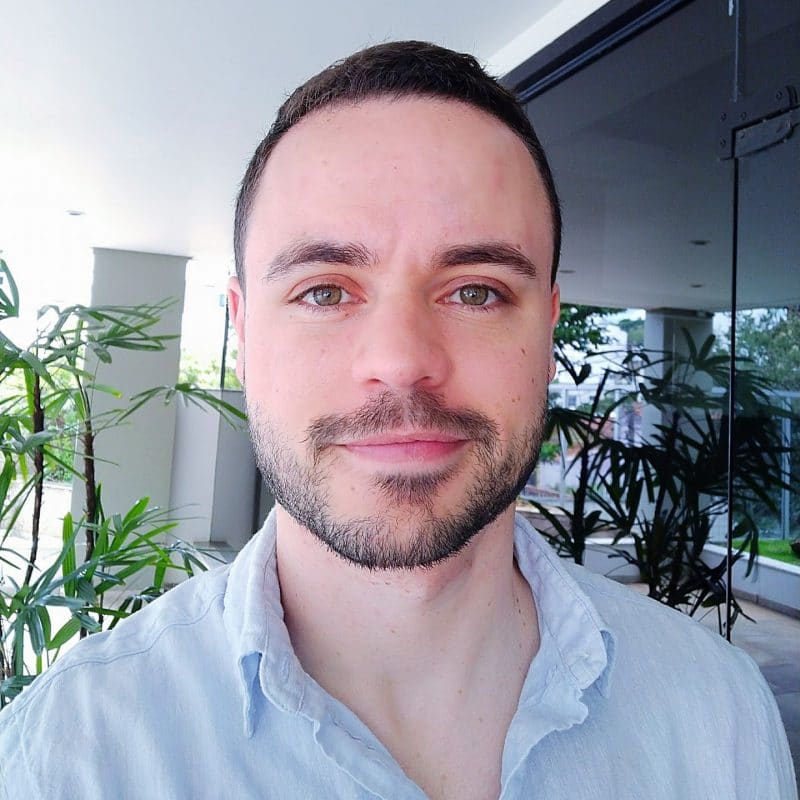
The Pew Latin American Fellows Program is a U.S.-based postdoctoral experience for early-career Latin American biomedical scientists. Designed to strengthen scientific communities of both the United States and Latin America, the fellowship provides two years of postdoctoral training in a university lab at a leading U.S. institution. In addition to excellent resources for their research, fellows are provided a variety of networking opportunities. The fellowship fosters a spirit of collaboration and facilitates knowledge exchange between the United States and Latin America, furthering scientific research. Fellows are provided a stipend and benefits. If fellows decide to return to Latin America to establish their own independent labs, they are given a substantial grant from the Pew Foundation to purchase equipment and supplies.
We talked to Heverton Dutra, a 2017-2018 Pew Latin American Fellow from Brazil, to learn more about the fellowship and get some tips for preparing an application!
1. What inspired you to apply for the Pew Latin American Fellowship?
In 2017, at the end of my PhD and after being in the same lab for almost 6 years, I felt that it was time for me to move on. I did both my Masters and my PhD in Brazil and I wanted to get experience doing research outside the country, possibly as a postdoc.
One day, my advisor forwarded me an email from the Pew Foundation that mentioned the application for the 2017 selection process. He encouraged me to apply, saying that it was a very prestigious fellowship. I looked up their website, did some research on the foundation itself, and immediately got excited about it. The concept behind the fellowship itself is a bit different from other sponsored programs. What got my attention was that the Pew Latin American fellows program strongly encourages current fellows to return to their home country after completing their training abroad. They make this a reality by providing a $70,000 grant for the fellow at the end of the program to initiate a lab in their home country. I’d never seen something like this before, and it was definitely a game-changer in my decision to apply to the program.

2. What is a typical week like for a PEW Latin American Fellow?
I started my work as a postdoctoral fellow at Harvard, working with mosquitoes. However, after a year there, I decided to switch labs. I’m currently a postdoctoral fellow at Boston University, working daily on the interplay among an endosymbiotic bacterium called Wolbachia pipientis, fruit flies, and viruses. I must say here that the amount of support I received from the Pew Latin America Director, Dr. Kara Coleman, and other members of the foundation, was crucial in the transition process.
The postdoctoral experience in the U.S. has been great so far. I’ve had the opportunity to learn amazing techniques that I’ll carry for the rest of my life and have gotten a solid networking experience. One example of such rich scientific environment that I’ve experienced was the Pew Annual meeting in March 2017. There, I saw how the fellowship is really committed to building a solid network that involves the interaction between early career scientists, established Principal Investigators and postdoctoral fellows. The annual meeting introduced me to many researchers within my field, many of whom had written papers I had read papers before, but not met in person. Interacting with those scientists and getting their feedback on my work was extremely positive and motivating to me.

3. What tips would you give others applying to the PEW Latin American Fellowship?
The main tip I would give is to write a solid proposal. It doesn’t matter if you think your idea is too crazy or too simple. What matters here is the scientific basis of your proposal, along with the ability to come up with an innovative hypothesis. Pew evaluates if the candidate is able to think independently. Showing these skills during the interview process should give you some advantage over other candidates. Additionally, pay attention to your CV. The selection process is divided into multiple phases with the CV evaluation being part of the initial step. If you fail to convince the selection committee here, you won’t have the chance to tell them face-to-face what motivates you as a scientist.
When I applied to PEW, I had my idea already in mind, so it was only a matter of putting it all together on paper and finding a lab that would support it. Additionally, I was always paying attention to my CV, doing workshops, publishing papers, and getting grants. I would not say that having published papers or approved grants are a must; however, they definitively help.

Heverton received a Bachelor’s degree in Biology from the Federal University of Ouro Preto (UFOP) – Brazil, and a Master’s and PhD degrees in Cell and Molecular Biology from the Renê Rachou Research Institute – FIOCRUZ – Brazil. He coordinated the project “An Artificial Diet for Wolbachia-infected Aedes aegypti” as only the 9th Brazilian investigator ever funded by the Bill & Melinda Gates Foundation in the history of the Grand Challenges Exploration’s program. Heverton worked as a Pew Latin American postdoctoral fellow at the Department of Immunology and Infectious diseases at Harvard T.H. Chan School of Public Health, and is currently working as a postdoctoral fellow, funded by the same foundation, at the department of Biology at Boston University, working on the interplay between Drosophila and the endosymbiotic bacteria Wolbachia.
Interested in applying? Bookmark the PEW Latin American Fellows Program to your ProFellow account.
© Victoria Johnson 2018, all rights reserved